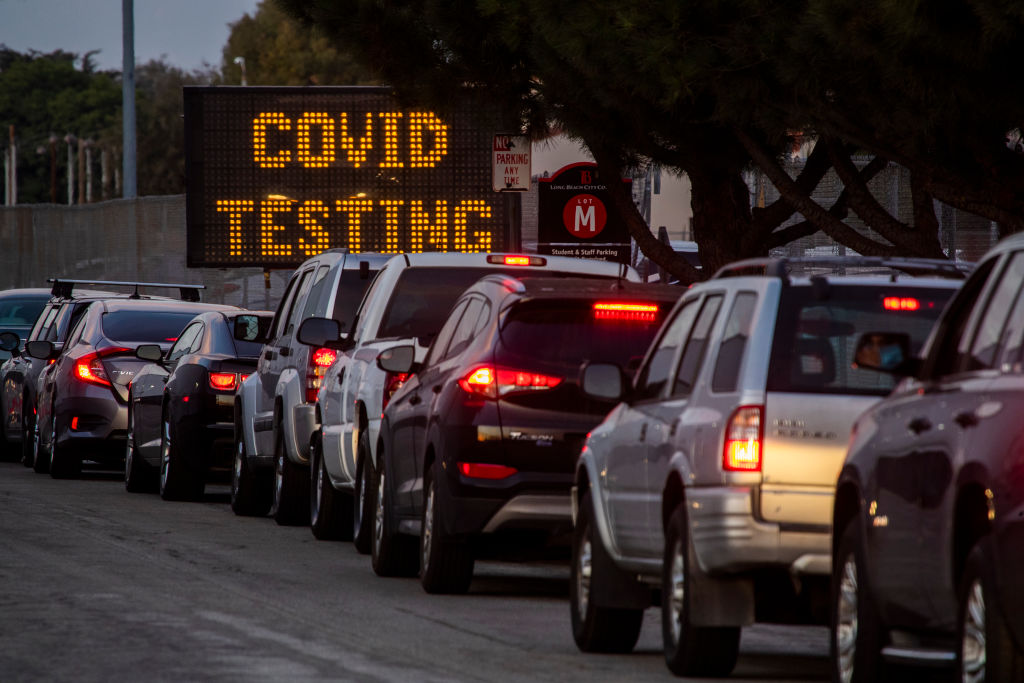When the Department of Energy released a report in late February concluding that the coronavirus most likely originated from a lab leak, pushback came from an unexpected source: the White House. There is “not a consensus” regarding the virus’ origins, national security spokesman John Kirby said. Then the FBI announced that it concurred with the Department of Energy. The mixed messaging points to a bigger issue: the lack of clarity and rigor in our evaluation of how COVID-19 came to be and how our response fared.
Other countries, including Denmark, Finland, Norway, and Sweden, have all created institutional bodies to evaluate their handling of the crisis. We should do the same here and compare our handling of the pandemic to that of other nations by establishing a blue-ribbon national commission.
An independent COVID-19 commission would be free to ask politically pesky questions —ones that cannot be fairly adjudicated on the editorial pages or airwaves. For instance: Why did America have the fifth-highest excess mortality rate of the 38 countries that make up the Organization for Economic Cooperation and Development during the first 18 months of the pandemic? Excess mortality includes reported and unreported COVID deaths as well as deaths caused indirectly by the pandemic, for example, among people who failed to get adequate medical care for other conditions. And it’s fair for the public to ask why the U.S. was a laggard on that indicator.
That question, and others, can only be asked by a national commission, a body that can remain relatively free of politics and posturing. Congressional committees, like the House Select Subcommittee on the Coronavirus Pandemic that recently held a public roundtable, will never have the credibility that a blue-ribbon commission will.
There is much we can learn not only about our own response but from other countries’. South Korea was hit hard early in the pandemic, did not lock down, and had the second-lowest excess mortality rate in the OECD. Korea adopted a strategy of aggressive testing, contact tracing, and isolation. Does that approach explain the difference, and why didn’t we adopt it here?
Or consider Sweden, which also did not lock down, but which had the eighth lowest excess mortality rate in the OECD. Sweden’s death rate from COVID alone is two-thirds that of the United States. Other Scandinavian countries, which locked down only briefly, did even better than Sweden in terms of excess mortality. What explains these differences?
A COVID-19 commission could openly explore the fraught topic of public lockdowns, particularly in the wake of China’s post-lockdown surging COVID case count. It has become clear that mass lockdowns carry significant costs, especially when it comes to keeping kids out of school. A growing body of research demonstrates the deleterious effects of school closures and remote learning, particularly for low-income groups.
There’s precedent for such a serious public search for facts: the 9/11 commission. By most accounts, the 9/11 commission conducted its work in a fair, rigorous, and partisanship-free manner. Chaired by former New Jersey Gov. Thomas Kean and former Indiana congressman Lee Hamilton, the effort allowed the country to examine what happened in the run-up to the attacks and to understand how we might do better. The commission identified numerous policy and intelligence failures. Its recommendations included creation of a new national intelligence director position and changes in border security and immigration policy.
Like the 9/11 commission, any COVID commission should contain an equal number of Democrats and Republicans. It also must be independent of the public health agencies. The CDC and the National Institutes of Health cannot be expected to take an objective look at the policies they supported and implemented. They are among the subjects of this study—not the entities that ought to steer it.
The commission should also investigate the roads not taken. One approach, called “Focused Protection,” was proposed in the Great Barrington Declaration, issued by a group of medical professionals and public health scientists. Citing concerns about the damaging effects of lockdowns—including lower childhood vaccination rates, mental health concerns, and reductions in health care for other conditions—it called for those at minimal risk of death to live their lives normally while focusing protection on those at highest risk—principally, older people. Unfortunately, the leadership at the NIH dismissed the authors as “fringe” epidemiologists—notwithstanding their Harvard, Oxford, and Stanford pedigrees. Should the public health leadership have taken the focused protection strategy more seriously?
The commission wouldn’t be all doom and gloom—understanding what went well is as vital as understanding what went badly. For instance, most experts agree we did an exceptional job developing and distributing vaccines in record time and that this was crucial to stemming the tide of the pandemic. On the other hand, many people resisted the COVID vaccines. What can we learn from the vaccine experience that can be repeated and avoided in the future?
Given the high variance of COVID-19 interventions and outcomes across countries and even states, we need to study the tradeoffs associated with major pandemic policy decisions. It has become apparent that U.S. officials didn’t adequately do that in the moment, and perhaps they couldn’t have, given the pace of events.
Three years after lockdowns and other measures began, it’s time for experts to help us grapple with the actual costs and benefits of policy interventions, to give the public the kind of accounting it deserves.






Please note that we at The Dispatch hold ourselves, our work, and our commenters to a higher standard than other places on the internet. We welcome comments that foster genuine debate or discussion—including comments critical of us or our work—but responses that include ad hominem attacks on fellow Dispatch members or are intended to stoke fear and anger may be moderated.
With your membership, you only have the ability to comment on The Morning Dispatch articles. Consider upgrading to join the conversation everywhere.